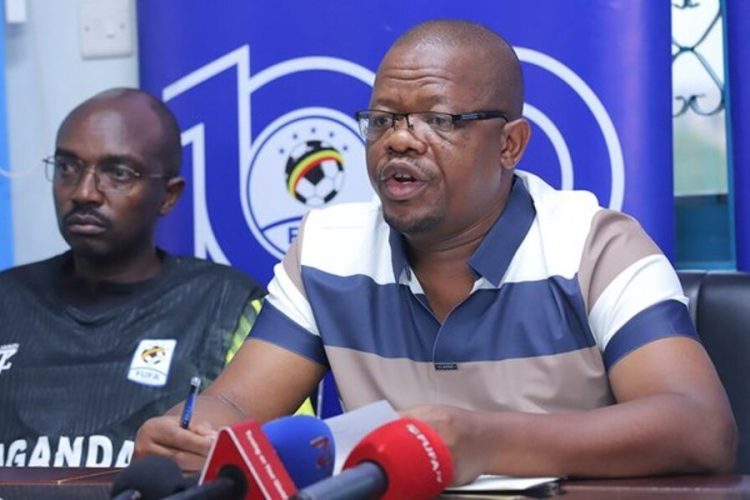The Federation of Uganda Football Associations (FUFA) has officially suspended the recently introduced StarTimes Uganda Premier League (UPL) structure following intense opposition from clubs, players, and supporters.
FUFA President Moses Hashim Magogo announced the decision on Saturday after an emergency meeting held at the FUFA Complex in Mengo. The session brought together representatives from the Uganda Premier League Secretariat and eleven of the sixteen top-tier clubs.
Magogo explained that the federation had opted to restore the traditional home-and-away format after engaging in extensive dialogue with the various football stakeholders.
“As FUFA, we have listened to the clubs and other stakeholders and agreed that we revert to the old format for this season. We will go back and make more reviews, further consultations, and get back to it next season,” Magogo said.
The FUFA Executive Committee later ratified the move in an official communiqué, confirming that Rule 14:4–12 of the 2025 FUFA Competition Rules, which had introduced the new structure, will not be enforced this season.
This decision marks a dramatic reversal from the reforms first unveiled in July, which had promised to “modernize” Ugandan football through a three-phase league system. Detailed in Circular 1202 issued on August 20, the new structure featured a one-leg first round, a second round that split teams into top and bottom groups, and a final round to determine the league standings.
The proposed format also came with sweeping administrative changes, including stricter player contract guidelines, revamped financial models, and mandatory match data submission.
FUFA Executive Committee suspends new format of the 2025/2026 StarTimes Uganda Premier League season
The FUFA Executive Committee has taken a decision to suspend the format of the 2025/2026 StarTimes Uganda Premier League season after consultations with the UPL clubs, league… pic.twitter.com/CJ0yE7MaS3
— FUFA (@OfficialFUFA) October 18, 2025
However, the rollout quickly sparked outrage. Leading clubs such as Vipers SC and SC Villa, alongside their supporters, decried the plan as rushed and poorly communicated. A mediation meeting held in early September at Serena Hotel failed to yield consensus, and tensions escalated after FUFA hinted that Shs 3.4 billion in league funding could be redirected to the FUFA Big League if clubs refused to comply.
Although the federation pressed on and published fixtures for a September 26 kick-off, discontent deepened. Attendance numbers plummeted, and fans across the country began organizing boycotts in protest of the reforms.
Matters reached a boiling point on October 2 when defending champions Vipers SC refused to honour their fixture against Kitara FC at Namboole, declaring they would not participate until their concerns were addressed. Their stance became a rallying cry for other clubs and supporters demanding change.
With growing unrest and visible cracks in the league’s unity, FUFA was forced into Saturday’s emergency retreat, effectively scrapping the new system to preserve the competition’s credibility.
The return to the familiar home-and-away setup is expected to calm tensions and rebuild public confidence as the season resumes.
Magogo emphasized that while the new league structure has been suspended, other administrative reforms, including club licensing and player registration measures, will remain under review for possible implementation in the future.






